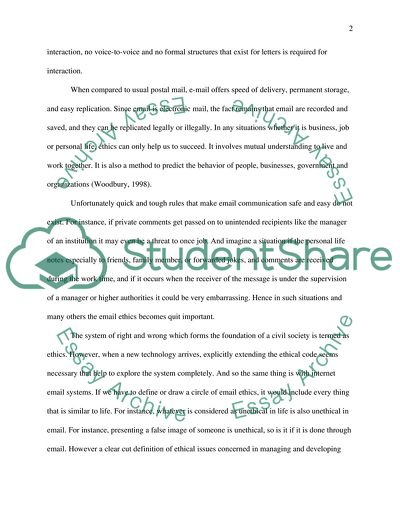Cite this document
(Ethics in E-mail Communication and Internet Article, n.d.)
Ethics in E-mail Communication and Internet Article. Retrieved from https://studentshare.org/ethics/1707104-e-mail-and-ethics
Ethics in E-mail Communication and Internet Article. Retrieved from https://studentshare.org/ethics/1707104-e-mail-and-ethics
(Ethics in E-Mail Communication and Internet Article)
Ethics in E-Mail Communication and Internet Article. https://studentshare.org/ethics/1707104-e-mail-and-ethics.
Ethics in E-Mail Communication and Internet Article. https://studentshare.org/ethics/1707104-e-mail-and-ethics.
“Ethics in E-Mail Communication and Internet Article”. https://studentshare.org/ethics/1707104-e-mail-and-ethics.


